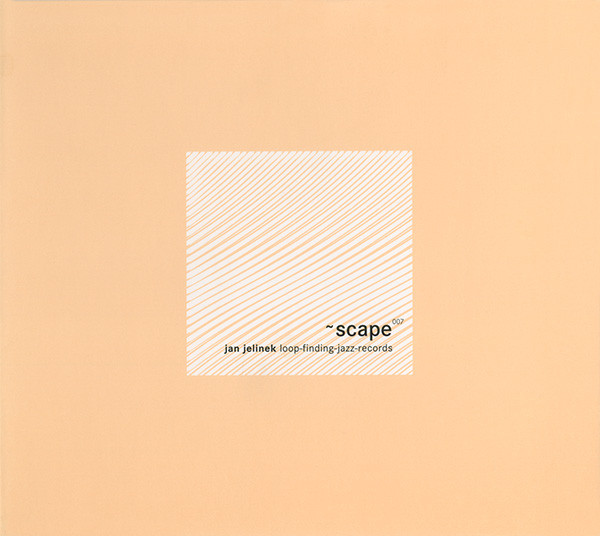
Jan Jelinek - Loop-Finding-Jazz-Records
Minimal Techno/Glitch, 2001
A masterclass in sampling and glitches.
This album is known for being entirely made on Ensoniq's ASR10 sampler, making this either the perfect connection between man and machine or a very good advertisement for the sampler.
It's difficult to psychoanalyze glitches. Here they definitely add to the overall minimalist approach and aesthetic, since they are sounds with extremely short duration and very little tonal characteristics. Glitches can also be seen as a display of playfulness, since it's sounds that can come out by using equipment mischievously wrong, kinda like programming an infinite loop in order to crash the class computer.
Those sounds usually act as percussion by playing rhythmic patterns. on the opener, "Moiré (Piano & Organ)", there is a click accenting a 6/8 rhythm, whilst the rest of the percussion also has a light swing to them. There are also some nice stuttery moments on "Do Sekor" that add some rhythmic perplexion which I really enjoy.
I'm generally not a big fan of sampling. Neither hearing it or doing it. but Jan Jelinek's approach to sampling is unique, prioritizing on the textures and tonal characteristics of the material used, instead of borrowing compositional elements from it. Although all the sampling material is gathered from different sources, the sound palette is still perfectly uniform throughout the album, with the signature glitchy and clicky sounds adding to the uniformity and also building on the album's whole personality.
Even though it may seem like a harsh listen from a technical perspective, Loop-Finding-Jazz-Records is a very warm and comfy album. The samples give a light jazzy vibe through the chords used in them and the warm droney textures feel really lush and calming. The album is also taking a bit from Techno, with some 4 on the floor kicks and dancey grooves present here and there. "Tendency" would probably be the closest to dancefloor material.
Loop-Finding-Jazz-Records is one of the most fundamental "clicks and cuts" albums, but still a very unique and separate entity in the landscape of electronic music.